Omega-3 for Dogs
- Omega-3 supplements can significantly improve your dog's joint health by reducing inflammation and supporting mobility, especially in ageing dogs.
- High-quality fish oil supplements, such as JP's Natural Omega-3 Fish Oil, provide essential EPA and DHA that most commercial dog foods lack in sufficient quantities.
- Regular supplementation can transform your dog's coat from dull and dry to shiny and soft while alleviating skin irritations and excessive shedding.
- Dogs with allergies, heart conditions, or cognitive challenges can experience substantial benefits from proper omega-3 supplementation.
- Not all omega-3 supplements are created equal—marine-sourced options generally provide better bioavailability for dogs than plant-based alternatives.
Your dog's wagging tail might hide the fact that they're missing essential nutrients for optimal health. Despite feeding premium kibble, many dogs lack sufficient omega-3 fatty acids in their diet, creating a nutritional gap that affects everything from joint mobility to skin health. The right omega-3 supplement can be the difference between a dog that merely exists and one that thrives with vitality.
Anchovies provide Omega-3 fish oil for dogs
Why Your Dog Needs Omega-3 Supplements Now
Modern commercial pet foods often fail to provide dogs with sufficient omega-3 fatty acids. JP's Natural Pet Supplements explains that heat processing and extended storage destroy many of these delicate nutrients before they ever reach your dog's bowl. Even premium dog foods typically contain imbalanced ratios of omega-6 to omega-3 fatty acids, often as high as 15:1, when the ideal ratio should be closer to 5:1 for optimal health.
The evolutionary diet of canines included whole prey animals, providing naturally balanced fatty acids that supported everything from brain function to inflammatory responses. Today's domestic dogs rarely obtain these nutrients in their processed diets, leading to deficiencies that can manifest as health issues over time. Without supplementation, these nutritional gaps widen as dogs age, potentially accelerating joint degeneration, cognitive decline, and the development of chronic inflammatory conditions.
Unlike some trendy supplements with questionable benefits, omega-3s have substantial scientific research backing their effectiveness for canine health. Veterinarians often recommend these supplements to address specific health conditions and maintain overall wellness. The improvements aren't just theoretical—they're visible in shinier coats, improved mobility, and better overall quality of life for dogs receiving proper supplementation.
Common Health Issues in Dogs That Omega-3 Can Help Solve
If your furry friend struggles with health challenges, omega-3 supplementation might be the missing piece in their wellness puzzle. These essential fatty acids address multiple conditions simultaneously, providing a holistic approach to improving canine health. Unlike many targeted medications, omega-3s work at the cellular level to support whole-body functions.
Joint Pain and Mobility Problems
Dogs experiencing stiffness after resting or reluctance to climb stairs may be suffering from joint inflammation. Omega-3 fatty acids, particularly EPA, naturally combat this inflammation by inhibiting pro-inflammatory pathways in the body. A study published in the Journal of Veterinary Internal Medicine found that dogs receiving omega-3 supplementation showed significant improvements in weight-bearing and overall mobility compared to control groups.
Breeds predisposed to hip and elbow dysplasia, including German Shepherds, Labrador Retrievers, and Golden Retrievers, can particularly benefit from early and consistent omega-3 supplementation. The anti-inflammatory effects help reduce cartilage degradation while supporting the synovial fluid that lubricates joints. For senior dogs already experiencing arthritis, omega-3s may not reverse structural damage, but they can substantially reduce pain and improve the quality of life.
JP's Omega-3 Joint Supplement with green-lipped mussel
Dry, Itchy Skin and Dull Coat
That constant scratching and dull, brittle fur might indicate your dog needs omega-3 fatty acids. These nutrients integrate into skin cell membranes, improving the skin's barrier function and moisture retention. Within weeks of proper supplementation, many dogs experience reduced dandruff, less itching, and noticeably softer, shinier coats.
Excessive shedding often decreases with regular omega-3 supplementation as hair follicles receive better nutrition and the skin's health improves. The improvements aren't just cosmetic—healthier skin forms a better barrier against environmental irritants and potential pathogens. Dogs with chronic hot spots or recurring skin infections frequently show marked improvement when omega-3s become part of their regular health regimen.
Allergies and Inflammatory Conditions
Seasonal allergies and food sensitivities plague many dogs, causing discomfort and sometimes leading to secondary infections. Omega-3 fatty acids modulate the immune response, potentially reducing the overreaction to allergens that trigger symptoms. While not a replacement for identifying and addressing specific allergens, omega-3 supplementation can significantly reduce the severity of reactions.
Inflammatory bowel conditions also respond positively to omega-3 supplementation in many cases. The anti-inflammatory properties help calm irritated digestive tissues, potentially reducing episodes of diarrhoea and discomfort. For dogs with chronic autoimmune conditions, the immune-modulating effects of omega-3 fatty acids can complement traditional treatments by addressing the underlying inflammatory processes.
Heart and Kidney Health Concerns
Omega-3 fatty acids support cardiovascular function by helping to maintain healthy blood pressure, reducing triglycerides, and promoting a proper heart rhythm. For breeds predisposed to heart conditions, such as Cavalier King Charles Spaniels, Doberman Pinschers, and Boxers, preventative omega-3 supplementation may provide valuable cardiovascular protection. Research indicates that dogs with heart conditions receiving omega-3 supplements often maintain better heart function and quality of life than those without supplementation.
Kidney health also benefits from the anti-inflammatory properties of omega-3 fatty acids. For dogs with early-stage kidney disease, these fatty acids may help slow progression by reducing inflammation in the filtering structures. While not a cure for existing kidney disease, omega-3 fatty acids can be part of a comprehensive approach to supporting renal function and extending the quality of life for affected dogs.
Top 5 Benefits of Omega-3 Supplements for Dogs
When you add omega-3 supplements to your dog's daily routine, you're not just addressing specific problems—you're upgrading their entire health system. These essential fatty acids work at the cellular level, influencing everything from joint function to brain health. The comprehensive benefits explain why veterinarians consistently recommend omega-3 supplementation as part of preventative care.
Most dog owners notice visible improvements within 3-6 weeks of consistent supplementation, although internal benefits begin to take effect much sooner. The cumulative effects build over time, creating both immediate relief for acute issues and long-term protection against age-related decline. Let's explore the five most significant benefits your dog can experience.
1. Reduces Inflammation and Joint Pain
Omega-3 fatty acids are nature's anti-inflammatory compounds, working to neutralise the body's inflammatory responses that cause pain and stiffness. For dogs with arthritis or joint dysplasia, this means less morning stiffness, improved mobility, and often a noticeable increase in playfulness and activity levels. The mechanism is particularly effective because omega-3s target the same inflammatory pathways as many prescription medications, but without the potential side effects on the liver and kidneys. For more information on omega-3 supplements for dogs, check out this omega supplement for dogs.
Studies show that dogs receiving adequate EPA and DHA often require lower doses of pain medications, thereby reducing the risk of side effects associated with long-term pharmaceutical use. The joint-protecting benefits are especially valuable for large breeds, working dogs, and senior pets who experience greater mechanical stress on their joints. Even young, healthy dogs benefit from the preventative effects that may delay the onset of age-related joint deterioration.
2. Improves Skin Health and Coat Appearance
That lustrous, soft coat that turns heads at the dog park doesn't happen by chance—it requires proper nutrition, particularly omega-3 fatty acids. These nutrients integrate into the skin's cellular structure, improving moisture retention and reducing dryness and flaking. For dogs suffering from chronic dry skin, hot spots, or excessive itching, omega-3 supplementation often provides notable relief within weeks.
The visible transformation in coat quality—from dull and brittle to shiny and soft—reflects deeper improvements in skin health. Reduced shedding is another welcome benefit for many dog owners, as healthier hair follicles retain fur longer and shed more predictably. These improvements aren't just cosmetic; they indicate better overall health and enhanced protection against environmental irritants and potential skin infections.
3. Supports Brain Development and Cognitive Function
DHA, a specific type of omega-3 fatty acid, is a primary structural component of brain tissue and essential for neural development and function. Puppies receiving adequate DHA typically show improved trainability, better memory, and enhanced problem-solving abilities. For senior dogs, regular DHA supplementation may help slow cognitive decline, maintain mental sharpness, and reduce the confusion and anxiety that often accompany ageing.
The neuroprotective benefits extend to dogs of all ages, supporting optimal brain function throughout life. Working dogs, service animals, and pets engaged in training or canine sports may especially benefit from the cognitive support that omega-3s provide. Many owners report their dogs remain more alert, engaged, and responsive when receiving proper omega-3 supplementation.
4. Strengthens Immune System Function
Omega-3 fatty acids help modulate immune responses, enhancing the body's ability to fight infections while reducing inappropriate immune reactions that lead to allergies and autoimmune conditions. This dual action creates a more balanced immune system that responds appropriately to genuine threats without overreacting to harmless stimuli. Dogs with seasonal allergies or food sensitivities often experience fewer and less severe reactions when receiving regular omega-3 supplementation.
The immune-supporting benefits are particularly valuable during periods of stress, seasonal changes, or when dogs are exposed to new environments. Enhanced resistance to common infections means fewer veterinary visits and a more consistently healthy pet. For dogs undergoing medical treatments or recovering from illness, omega-3s can support faster healing and recovery by optimising immune function.
5. Promotes Heart and Kidney Health
Cardiovascular health significantly improves with omega-3 supplementation, as these fatty acids help maintain healthy blood pressure, reduce inflammation in blood vessels, and support proper heart rhythm. For breeds predisposed to heart conditions, preventative omega-3 supplementation can be an essential part of cardiac care. Even healthy dogs benefit from the protective effects that help maintain optimal heart function throughout life.
Kidney function also receives valuable support from omega-3 fatty acids. By reducing inflammation and improving blood flow to the kidneys, these nutrients help maintain renal health and function. For senior dogs or those with early kidney issues, omega-3 supplementation may help slow the progression of kidney disease and support a better quality of life. The combined cardiovascular and renal benefits make omega-3s particularly valuable for ageing dogs and those with genetic predispositions to these conditions.
Types of Omega-3 Fatty Acids Your Dog Needs
Not all omega-3s deliver the same benefits for your canine companion. Understanding the different types and their specific functions helps you select the most effective supplement for your dog's needs. While all omega-3 fatty acids share particular properties, their bioavailability and targeted benefits vary significantly.
EPA, DHA, and ALA Explained
EPA (eicosapentaenoic acid) primarily addresses inflammatory responses in the body, making it particularly valuable for dogs with arthritis, skin conditions, or allergies. This powerful anti-inflammatory compound helps reduce pain, swelling, and irritation throughout the body. EPA also supports heart health by helping maintain healthy blood pressure and reducing triglyceride levels.
DHA (docosahexaenoic acid) is crucial for brain and eye development and function. Puppies require significant amounts for proper neural development, while senior dogs benefit from DHA's neuroprotective effects that help maintain cognitive function. This type of omega-3 is also vital for maintaining cellular membrane health throughout the body, influencing everything from hormone response to nutrient absorption.
ALA (alpha-linolenic acid) is found primarily in plant sources like flaxseed and chia seeds. Dogs can convert small amounts of ALA to EPA and DHA, but the conversion rate is extremely inefficient—typically less than 10%. While ALA offers some benefits, it's not nearly as effective as direct sources of EPA and DHA for addressing most canine health needs.
Marine vs. Plant Sources: Which is Better for Dogs?
Marine-derived omega-3s significantly outperform plant sources for canine health. Fish oil and marine lipid concentrate provide ready-to-use EPA and DHA that dogs can immediately utilise without conversion. This direct availability means faster and more reliable results for issues such as inflammation, skin problems, and cognitive support. Most veterinary research supporting the benefits of omega-3 fatty acids is based on marine sources rather than plant-derived options.
Plant sources, such as flaxseed oil, contain primarily ALA, which dogs must convert into the more beneficial EPA and DHA. This conversion process is highly inefficient in canines, with most dogs utilising only a small fraction of the potential benefits. While plant-based supplements may offer some value, they typically provide substantially less therapeutic benefit than marine-sourced alternatives.
"When comparing omega-3 sources for dogs, marine-derived supplements deliver approximately 10-15 times more usable EPA and DHA than plant sources, even accounting for differences in dosage. This dramatic difference in bioavailability explains why most veterinarians specifically recommend fish oil rather than flaxseed or other plant oils for therapeutic benefits."
The 7 Best Omega-3 Supplements for Dogs in 2025
After extensive research and consultation with veterinary experts, I've identified the most effective omega-3 supplements currently available for dogs. These products stand out for their purity, appropriate EPA/DHA concentrations, and proven track records of results. Quality varies dramatically among dog supplements, but these options consistently deliver on their promises.
Remember that the best supplement for your specific dog depends on factors including size, health conditions, and palatability preferences. Many owners find it helpful to try different high-quality options until finding the perfect match for their pet's needs and taste preferences.
1. JP's Natural Omega-3 Fish Oil for Dogs
JP's Natural Omega-3 Fish Oil stands out for its exceptionally high concentration of marine lipids from sustainable anchovy sources. This premium supplement delivers substantial amounts of EPA and DHA in a highly bioavailable form that dogs can immediately utilise. The natural formulation contains no artificial preservatives or additives, minimising the risk of sensitivity reactions while maximising therapeutic benefits for joint health, skin conditions, and cognitive support.
Dog owners consistently report visible improvements in coat quality and mobility within 3-4 weeks of starting this supplement. The liquid formulation allows for flexible dosing for dogs of all sizes, and most pets readily accept the taste when mixed with their food. Unlike many competitors, JP's maintains rigorous quality testing for contaminants such as heavy metals and PCBs, ensuring a safe and pure product for even the most sensitive dogs.
JP's Doggie Omega-3

2. Nordic Naturals Omega-3 Pet
Derived from wild-caught sardines and anchovies, Nordic Naturals provides pharmaceutical-grade omega-3s with exceptionally high purity standards. Their molecular distillation process effectively removes potential contaminants while preserving the delicate omega-3 molecules. This supplement is available in both liquid and soft gel formats, offering flexibility for different dogs' preferences and providing convenience for owners.
The company's transparency regarding sourcing and third-party testing builds confidence in its product quality. Many veterinarians recommend this brand for its consistent potency and minimal "fishy" odour compared to other options. While slightly higher priced than some alternatives, the certified purity and reliable results justify the investment for many pet parents.
3. Zesty Paws Pure Salmon Oil
This wild Alaskan salmon oil delivers a balanced profile of omega-3s along with naturally occurring omega-6 and omega-9 fatty acids. The pump dispenser design reduces oxidation by minimising air exposure and makes precise dosing simple for dogs of different sizes. Many owners report that their pets eagerly consume this supplement directly from the spoon due to its mild, natural flavour.
Particularly effective for addressing skin and coat issues, Zesty Paws maintains strict quality control and sustainability practices in its sourcing. The natural astaxanthin content provides additional antioxidant benefits beyond the standard omega-3 profile. This supplement represents an excellent value option that doesn't compromise on essential quality factors.
4. Grizzly Salmon Oil
Sourced from wild Alaskan salmon, Grizzly's product offers a complete spectrum of omega fatty acids, including harder-to-find omega-5, 6, 7, 8, and 9, in addition to the crucial omega-3s. This broader profile creates comprehensive support for multiple body systems simultaneously. The sustainable fishing practices and traceable sourcing appeal to environmentally conscious pet owners.
The distinctive pump bottle design enables clean, controlled dispensing directly onto food, eliminating dripping and waste. Many owners, particularly those with senior dogs, value this supplement for its ability to address multiple age-related conditions concurrently, thanks to its diverse fatty acid profile. The natural salmon flavour tends to be highly palatable even for fussy eaters.
5. Amazing Nutritional’s Omega-3 Fish Oil
These soft gel capsules provide a convenient alternative to liquid formulations, particularly for travel or households with multiple dogs that require precise individual dosing. The enteric coating helps prevent the "fish burps" that sometimes occur with other capsule supplements, improving palatability when hidden in treats or food. The concentrated formula requires fewer capsules to achieve therapeutic dosing.
Notably, this product utilises a molecular distillation process, which effectively removes potential contaminants such as mercury and PCBs. Dogs with particularly sensitive digestion often tolerate this formulation better than liquids, thanks to the protective coating that delays release until it reaches the small intestine. The company's satisfaction guarantee demonstrates confidence in its product quality.
6. PetHonesty Omega Salmon Oil
This wild-caught Alaskan salmon oil contains naturally preserved omega-3s without artificial additives or flavours. The sustainable sourcing and regular testing for contaminants make it a responsible choice for pet owners concerned about their pet's health. The pump dispenser system allows for easy, mess-free application directly onto food, with clear dosing guidelines based on weight.
Many owners specifically praise this supplement for addressing allergy-related skin issues, reporting reduced itching and improved coat condition within weeks of starting supplementation. The company's transparency regarding sourcing and processing builds confidence in the product's quality and purity. The natural salmon flavour proves highly palatable for most dogs.
7. TerraMax Pro Premium Omega-3 Fish Oil
This pharmaceutical-grade fish oil undergoes molecular distillation to ensure exceptional purity and potency. The higher concentration of omega-3s means smaller serving sizes are required to achieve therapeutic benefits, making the product more economical over time, despite its premium price point. The company's adherence to strict manufacturing standards results in a consistently reliable product.
The specialised bottle design minimises oxidation to maintain freshness throughout the product's use. Dogs with particularly severe inflammatory conditions often show marked improvement with this higher-potency formulation. The company's money-back guarantee demonstrates confidence in the effectiveness and quality of its products.
How to Choose the Right Omega-3 Supplement for Your Dog
Selecting the optimal omega-3 supplement for your specific dog requires considering several critical factors beyond just price. With countless options claiming to be "premium" or "high-quality," knowing which specific attributes truly matter helps you invest wisely in your dog's health. The right supplement can transform your dog's wellbeing, while the wrong choice might deliver minimal benefits or even cause digestive upset.
Quality Indicators to Look For
Source identification represents the first quality indicator—look for supplements that clearly state the specific fish species used, with cold-water fishlike salmon, sardines, and anchovies providing superior omega-3 profiles. Wild-caught sources generally contain higher omega-3 concentrations than farmed alternatives and carry less risk of contaminants. The processing method significantly impacts quality, with molecular distillation and cold-pressing preserving more beneficial compounds than high-heat extraction techniques.
Concentration matters tremendously—check the actual EPA and DHA content per serving, not just the total "fish oil" amount. Quality supplements typically provide at least 15-20% EPA and 12-15% DHA by volume. Additionally, responsible manufacturers conduct third-party testing for purity and potency, sharing the results on their packaging or websites. Companies that proudly display their testing protocols and results typically produce superior products.

Checking for Purity and Contaminants
Fish can accumulate environmental toxins, including mercury, PCBs, and dioxins, making purification processes essential for safe supplementation. Look for supplements that specifically mention testing for these contaminants and provide verification of results through third-party certification. Organisations like the International Fish Oil Standards (IFOS) or the National Animal Supplement Council (NASC) provide independent verification of supplement quality and safety.
Oxidation represents another critical concern for fish oil supplements, as rancid oils lose therapeutic benefits and may actually cause harm. Quality products feature natural antioxidants, such as vitamin E, to prevent oxidation and maintain freshness. Avoid supplements with unusually long shelf lives without proper preservation methods, as these may contain artificial preservatives or already be oxidised. The freshness date should be clearly marked, and responsible companies use oxygen-barrier packaging to maintain product integrity.
Liquid vs. Capsule Forms: Pros and Cons
Liquid supplements offer precise dosage control, particularly valuable for multi-dog households with pets of different sizes requiring individualised amounts. The liquid form typically provides faster absorption and better palatability when mixed directly with food. However, liquids require refrigeration after opening, can be messy to dispense, and may develop more pungent fishy odours over time, potentially decreasing palatability for some dogs.
Capsule formulations offer consistent, pre-measured doses and convenient storage without the need for refrigeration, making them ideal for travel or busy households. They eliminate the fish odour on hands after dispensing and typically have longer shelf stability. The downsides include less flexibility in dosing for very small dogs or those requiring unusual amounts, potential difficulty administering to pets that resist swallowing pills, and occasionally delayed absorption compared to liquid forms.
Correct Dosage: How Much Omega-3 Does Your Dog Need?
Appropriate dosing makes the difference between disappointing results and transformative benefits. While general guidelines provide starting points, remember that individual dogs may require adjusted amounts based on their specific health conditions, metabolism, and response to supplementation. Monitoring your dog's reaction and consulting with your veterinarian helps optimise dosage for maximum benefit.
Small Dogs (Under 20 lbs)
Small breeds typically require 250-500 mg combined EPA and DHA daily for maintenance, with therapeutic doses potentially reaching 750-1000 mg for specific health conditions. The concentrated nature of small dogs' metabolism means they often show faster results from proper supplementation but may also develop side effects more quickly if overdosed. Start at the lower end of recommendations and gradually increase while monitoring for improvements and digestive tolerance.
For toy breeds under 10 pounds, precision becomes particularly important as even small overdoses can cause digestive upset. Liquid supplements often work best for these tiny dogs, allowing for drop-by-drop dosage control that capsules cannot provide. Remember that small dogs with severe inflammatory conditions may sometimes require doses similar to those for medium-sized dogs, so work with your veterinarian to establish the optimal therapeutic level.
Medium Dogs (20-50 lbs)
Medium-sized dogs typically require 500-1000 mg of combined EPA and DHA daily for maintenance, with therapeutic doses ranging from 1000 to 1500 mg, depending on the condition being addressed. These dogs typically tolerate gradual introduction well, showing few digestive adjustment issues when supplements are properly incorporated with food. Their moderate metabolism provides a good balance of response time and tolerance.
Physically active individuals, such as those engaged in regular exercise or working activities, may benefit from doses at the higher end of the range to support joint health and recovery. Similarly, breeds predisposed to inflammatory skin conditions often show better results with slightly increased dosages. Monitor coat condition, mobility, and energy levels to assess whether the current dose is providing optimal benefits.
Large Dogs (Over 50 lbs)
Large and giant breeds require 1,000-1,500 mg of combined EPA and DHA daily for basic maintenance, while therapeutic dosing may reach 2,000-3,000 mg for specific conditions, such as arthritis or severe skin issues. Their substantial body mass and typically higher inflammatory burden mean they often need proportionally higher doses to achieve the same blood concentration of beneficial fatty acids. The investment in proper dosing pays dividends in reduced joint pain and improved mobility for these size-vulnerable dogs.
Working dogs, senior large breeds, or those recovering from injury may temporarily require even higher doses under veterinary supervision. The substantial muscle mass and joint stress experienced by large dogs create greater inflammatory challenges that benefit from aggressive omega-3 supplementation. Monitor carefully for improvements in movement, comfort after rest, and willingness to engage in activity as indicators of proper dosing.
Adjusting Dosage for Specific Health Conditions
Dogs with diagnosed inflammatory conditions, including arthritis, atopic dermatitis, or inflammatory bowel disease, typically require doses at the higher end of their weight range recommendations. Research indicates that therapeutic benefits for severe inflammatory conditions may require up to 75-100 mg of combined EPA/DHA per kilogram of body weight. These higher therapeutic doses should be implemented gradually, ideally with veterinary oversight to monitor the response.
For cognitive support, particularly in senior dogs showing signs of confusion or memory issues, emphasise products with higher DHA content and potentially increase dosage by 25-50% above maintenance levels. Heart conditions generally respond best to higher-EPA formulations at doses in the upper therapeutic range. Remember that different health challenges may require adjusting not just the amount but also the specific ratio of EPA to DHA for optimal results.
Signs Your Dog is Benefiting from Omega-3 Supplements
Recognising positive responses helps confirm you've selected the right supplement and dosage for your dog's needs. While some benefits develop gradually, others provide relatively quick feedback about effectiveness. Tracking specific improvements creates valuable documentation of your dog's response that helps optimise their supplementation program over time.
Keep in mind that different health issues respond at varying rates, with improvements in skin and coat typically appearing before changes in joints or cognition. The absence of expected benefits within the expected timeframes suggests the need to reassess the supplement's quality, dosage, or consistency of administration. Maintaining a simple health journal during the first few months of supplementation provides objective tracking of improvements.
Remember that the benefits of omega-3 tend to be cumulative, with some effects becoming more pronounced after several months of consistent supplementation. This progressive improvement trajectory differs from those of medications, which often show immediate effects followed by plateaus. The gradually expanding benefits make omega-3s particularly valuable for long-term health support and preventative care.
Timeline for Visible Improvements
Skin and coat improvements typically appear first, with reduced dandruff and itching often noticeable within 3-4 weeks of starting supplementation. The coat's shine and softness generally improve by 6-8 weeks, with complete transformation, including reduced shedding and enhanced resilience to environmental irritants, developing by 12 weeks of consistent use. These visible changes reflect deeper improvements in skin cell health and barrier function.
Joint mobility improvements follow a longer timeline, with mild improvements in morning stiffness and willingness to exercise often appearing within 4-6 weeks. More substantial changes in mobility, playfulness, and comfort typically develop between 8-12 weeks as the anti-inflammatory effects accumulate in joint tissues. For dogs with severe arthritis, the full benefits may continue growing for up to 16 weeks of regular supplementation.
When to Consult Your Vet About Results
- No visible improvement in coat condition after 8 weeks of proper supplementation
- Digestive upset persisting beyond the initial adaptation period (2 weeks)
- Worsening of symptoms or development of new health issues after starting supplements
- Minimal joint mobility improvement after 12 weeks at therapeutic dosing
- Questions about increasing dosage beyond general recommendations for specific conditions.
Professional guidance becomes particularly important when addressing severe health conditions or when using omega-3s alongside prescription medications. Your veterinarian can help determine whether the current supplement is appropriate or if switching to a different formulation might produce better results. They may also recommend blood work to assess inflammatory markers and determine if the current dosage is sufficient for your dog's specific needs.
For complex cases involving multiple health issues, veterinary input helps prioritise which conditions to address first and how to recognise successful responses. Some chronic conditions require significantly higher omega-3 doses than general maintenance recommendations, and professional oversight ensures these therapeutic levels remain safe and effective for your specific dog.
Ongoing monitoring by both you and your veterinarian create the foundation for optimising your dog's omega-3 supplementation program. Rather than viewing supplementation as a static process, treat it as an evolving component of healthcare that responds to your dog's changing needs throughout different life stages and health challenges.
Potential Side Effects and How to Avoid Them
While omega-3 supplements offer substantial benefits with minimal risks, understanding potential side effects helps you implement supplementation safely and effectively. Most adverse reactions stem from improper dosing, poor-quality products, or the too-rapid introduction of omega-3s rather than the omega-3s themselves. Monitoring your dog during the initial supplementation period allows for quick adjustments if needed.
Common Digestive Issues
Diarrhoea or loose stools represent the most frequently reported side effects, particularly when supplements are introduced too quickly or at full therapeutic doses from the start. This digestive adjustment usually resolves within 5-7 days as the body adapts to processing the additional fats. A temporary reduction in dosage, followed by gradual reintroduction, typically resolves these issues while still allowing for eventual full therapeutic benefits.
Vomiting or decreased appetite occasionally occurs with rancid or poor-quality supplements that have oxidised or contain contaminants. These reactions signal the need to change products rather than simply reducing dosage. Fresh, properly stored omega-3 supplements rarely cause these more severe digestive reactions when administered correctly with food.
Frequently Asked Questions
Dog owners naturally have questions about introducing new supplements to their pets' routines. These common questions address the most frequent concerns and misunderstandings about canine omega-3 supplementation. Clear, accurate information helps you make confident decisions about your dog's nutritional needs.
If your specific question isn't addressed here, consult with your veterinarian for personalised guidance based on your dog's individual health profile and needs. Professional input proves particularly valuable when addressing complex health conditions or using supplements alongside prescription medications.
Can I give my dog human fish oil capsules?
While technically possible in emergencies, human fish oil supplements often contain inappropriate concentrations, potentially harmful additives like xylitol, or flavourings that don't suit canine needs. Some human products contain vitamin D at levels safe for people but potentially toxic to dogs when given regularly. Pet-specific formulations provide appropriate concentrations, safer preservatives, and often include palatability enhancers that improve acceptance. The minor cost difference between human and veterinary products is justified by the improved safety profile and formulations specifically designed for canine physiology.
How long does it take to see results from omega-3 supplements?
Initial improvements in skin itchiness and dandruff often appear within 3-4 weeks of starting proper supplementation at therapeutic doses. More substantial changes, including improved coat shine, reduced shedding, and enhanced skin resilience, typically occur within 6-8 weeks of consistent use. These visible changes reflect deeper improvements in cellular health and function throughout the body.
Joint mobility and comfort improvements follow a longer timeline, with preliminary benefits often noticeable around 4-6 weeks and more substantial changes developing between 8-12 weeks of regular supplementation. Cognitive benefits for senior dogs may require even longer consistent supplementation, sometimes 12-16 weeks, before notable improvements in alertness or memory become apparent. Patience and consistency create the foundation for success with omega-3 supplementation.
Are there any dogs that shouldn't take omega-3 supplements?
Dogs with diagnosed bleeding disorders, those scheduled for surgery within two weeks, or pets taking anticoagulant medications require veterinary guidance before starting omega-3 supplements. While generally safe, the mild anti-coagulant effects of high-dose omega-3s could potentially compound these specific medical situations. These cases don't necessarily prohibit supplementation but may require adjusted dosing or temporary discontinuation during critical periods.
"For dogs with pancreatitis or a history of this condition, special considerations apply to omega-3 supplementation. Rather than avoiding these beneficial nutrients entirely, work with your veterinarian to determine appropriate dosing and introduction schedules. Many dogs with controlled pancreatitis can safely benefit from omega-3s when started at very low doses and gradually increased while monitoring pancreatic enzyme levels."
Pregnant or nursing dogs should receive omega-3 supplementation only under the guidance of a veterinarian, as their specific nutritional needs differ from those of other adult dogs. While DHA particularly benefits developing puppies, the dosage and timing require professional guidance to optimise benefits for both mother and offspring. Many veterinarians recommend continuing supplementation through pregnancy and lactation, but may adjust amounts based on the mother's condition and litter size. Recent research has shown that puppies born to bitches receiving omega-3 fatty acids have a lower risk of canine atopic dermatitis.
Can omega-3 supplements help with my dog's behaviour problems?
Emerging research suggests that omega-3 supplementation may indeed influence canine behaviour, particularly in relation to issues such as anxiety, reactivity, and cognitive function. The mechanism appears related to improved neurological signalling and reduced inflammatory processes in the brain. Several studies have demonstrated improved trainability and reduced anxiety-related behaviours in dogs receiving adequate DHA, particularly in ageing dogs experiencing cognitive changes.
For dogs with noise sensitivity, separation anxiety, or general nervousness, omega-3 supplementation often works best as part of a comprehensive approach including behavioural modification and appropriate environmental management. The neurological benefits typically develop gradually over 8-12 weeks of consistent supplementation, rather than providing immediate calming effects, as some medications do. Many behaviourists and veterinary behaviourists now include omega-3 recommendations in their treatment protocols, particularly for cases involving both behavioural and physical symptoms.
Puppies receiving adequate DHA during development demonstrate improved trainability and problem-solving abilities compared to those with deficient levels. This developmental advantage creates a foundation for better behavioural responses throughout life. For adult dogs with established behaviour patterns, omega-3s alone rarely resolve complex issues but may enhance responsiveness to training and behaviour modification techniques by improving neurological function and reducing anxiety-driven reactions.
"In our behavioural medicine practice, we've observed that approximately 60% of dogs with anxiety-related behaviours show measurable improvement when omega-3 supplementation is added to their treatment protocol. The changes aren't immediate—typically emerging after 2-3 months of consistent supplementation—but they contribute to more sustainable long-term improvements than behavioural modification alone, particularly for genetically predisposed anxiety conditions."
The omega-3 and brain health connection illustrates why nutritional approaches should be considered alongside traditional behavioural techniques when addressing canine behaviour challenges. The best results typically come from combining proper nutrition, including omega-3 supplementation, with appropriate training, environmental management, and—when necessary—behavioural medications. JP's Natural Pet Supplements provides omega-3 products that support this holistic approach to canine behavioural health, addressing the physiological foundations that influence behaviour patterns.





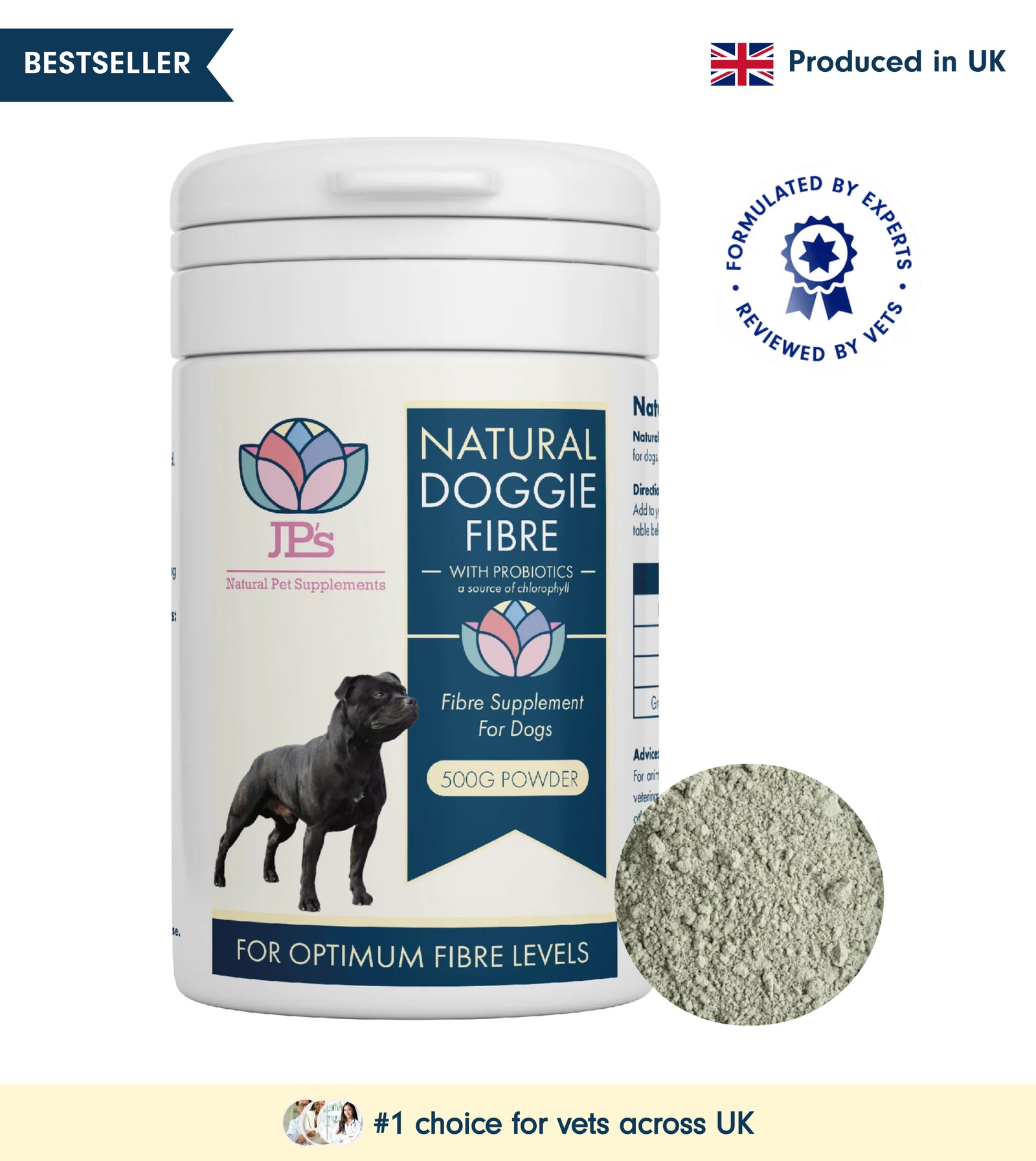
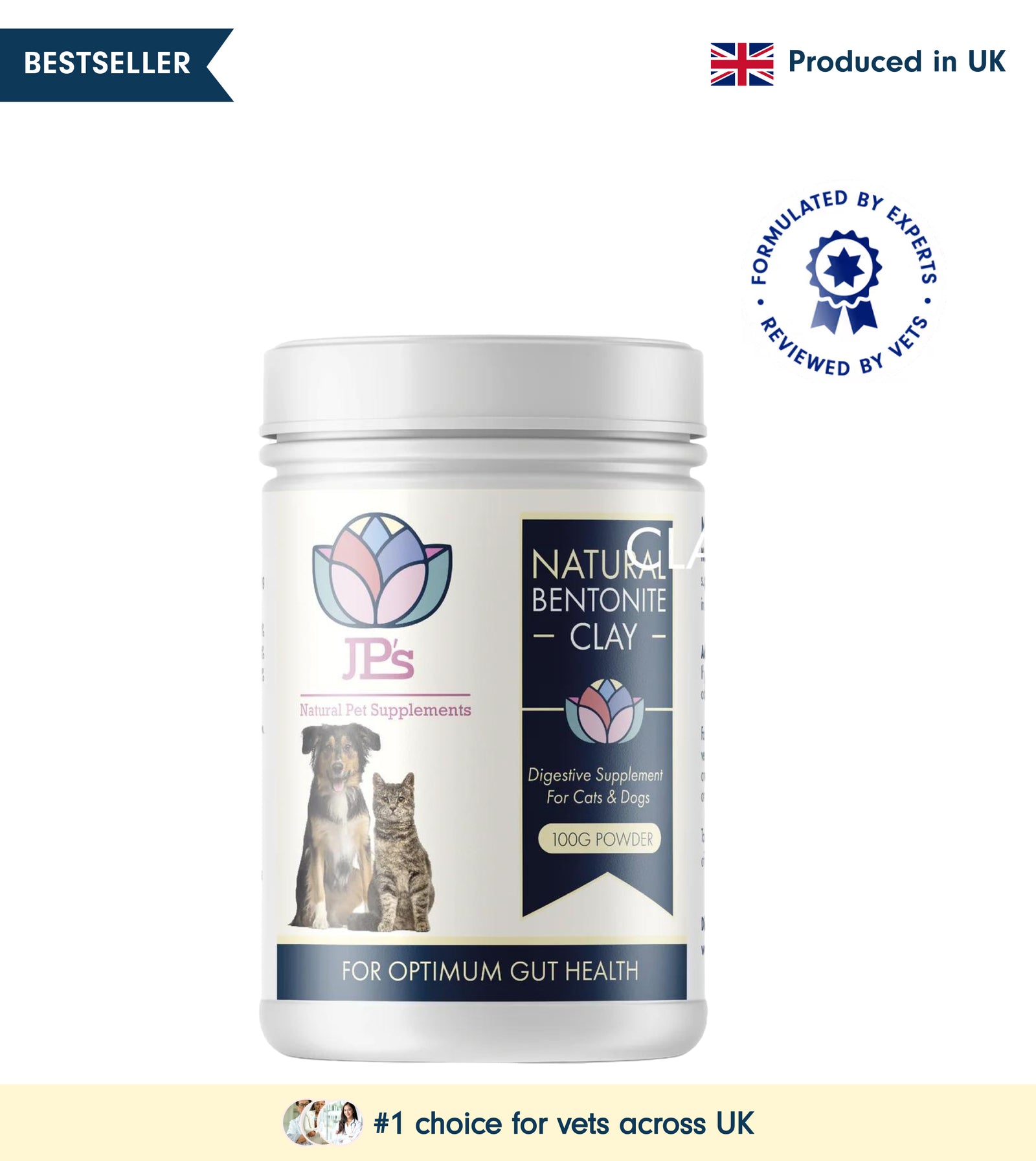
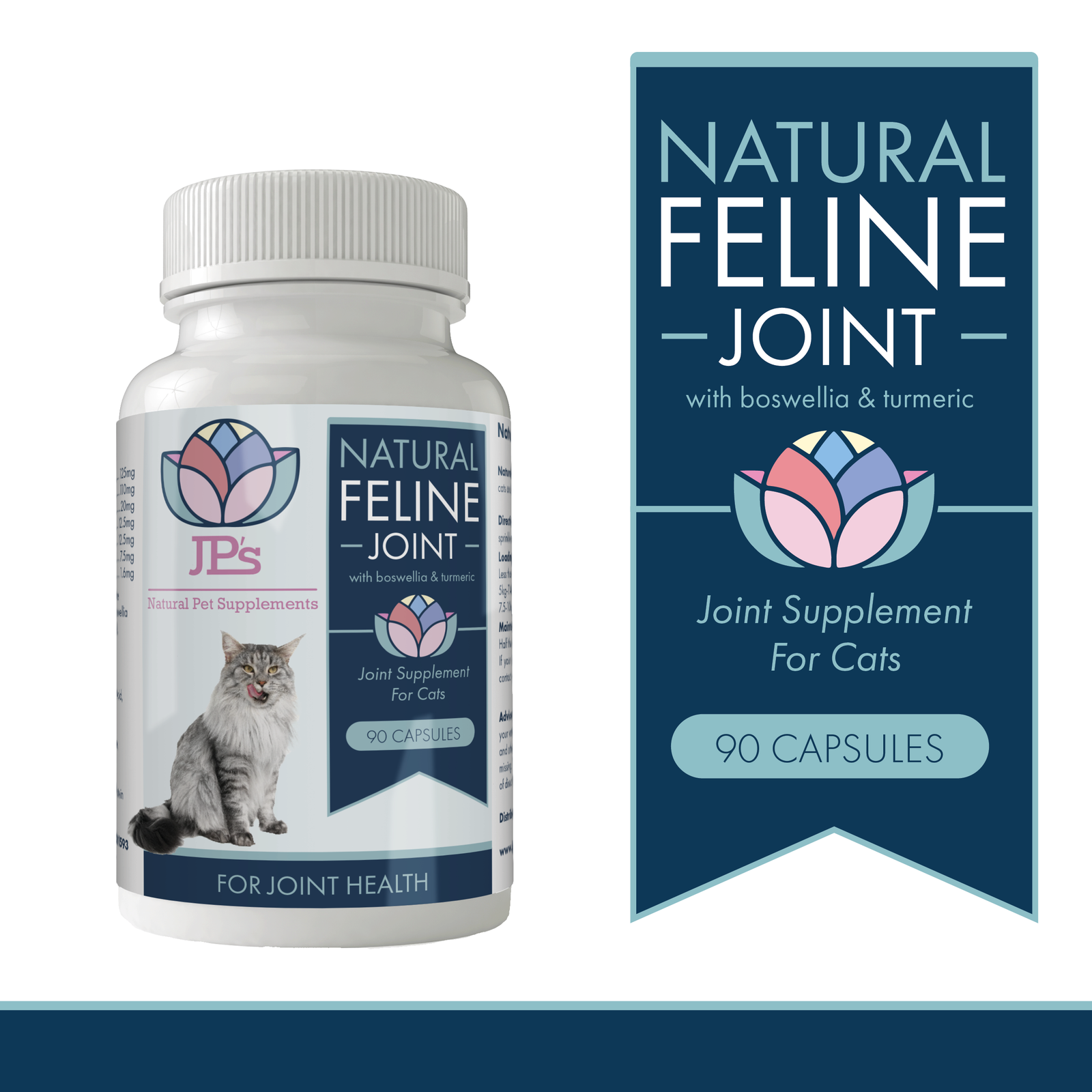
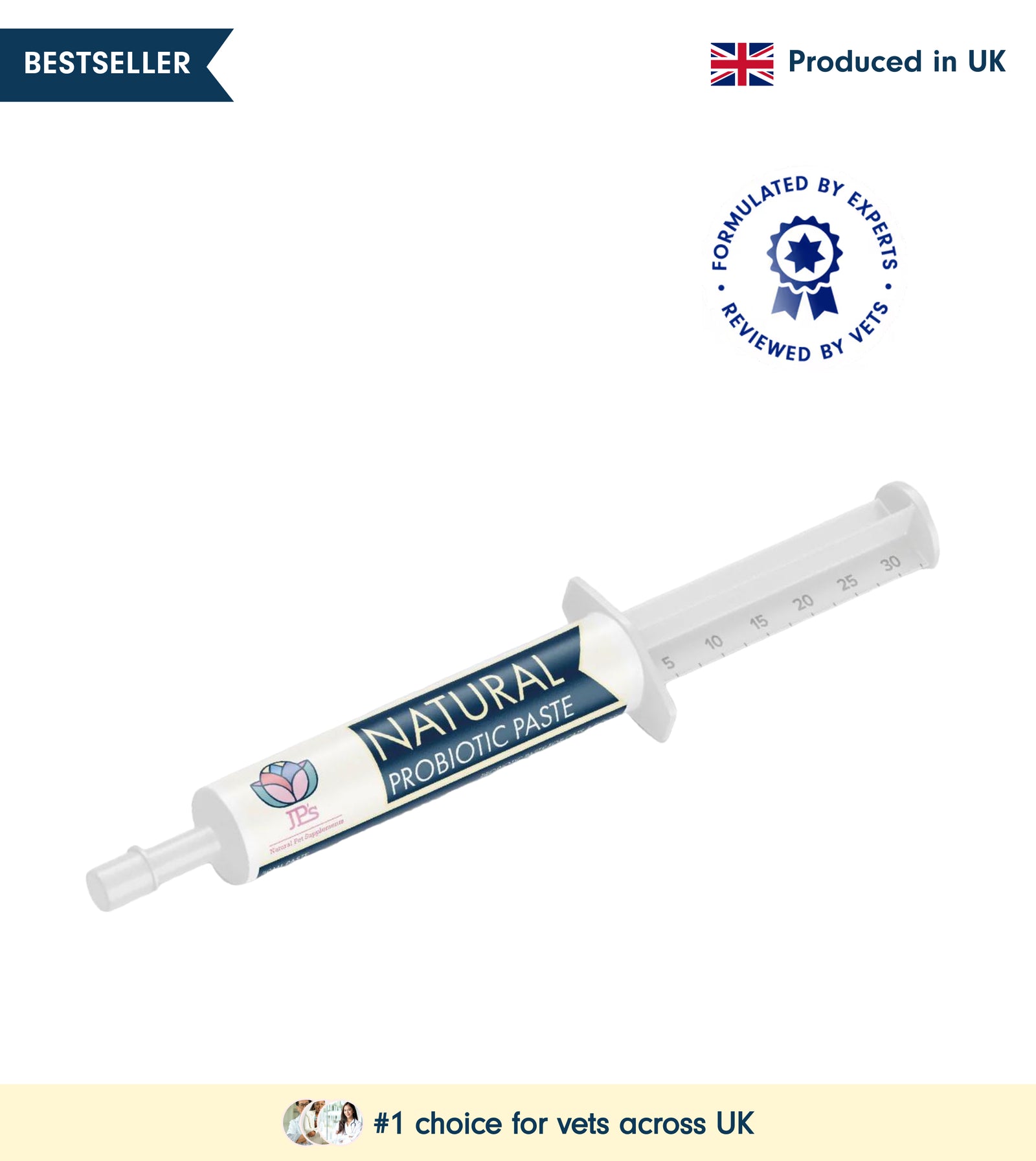
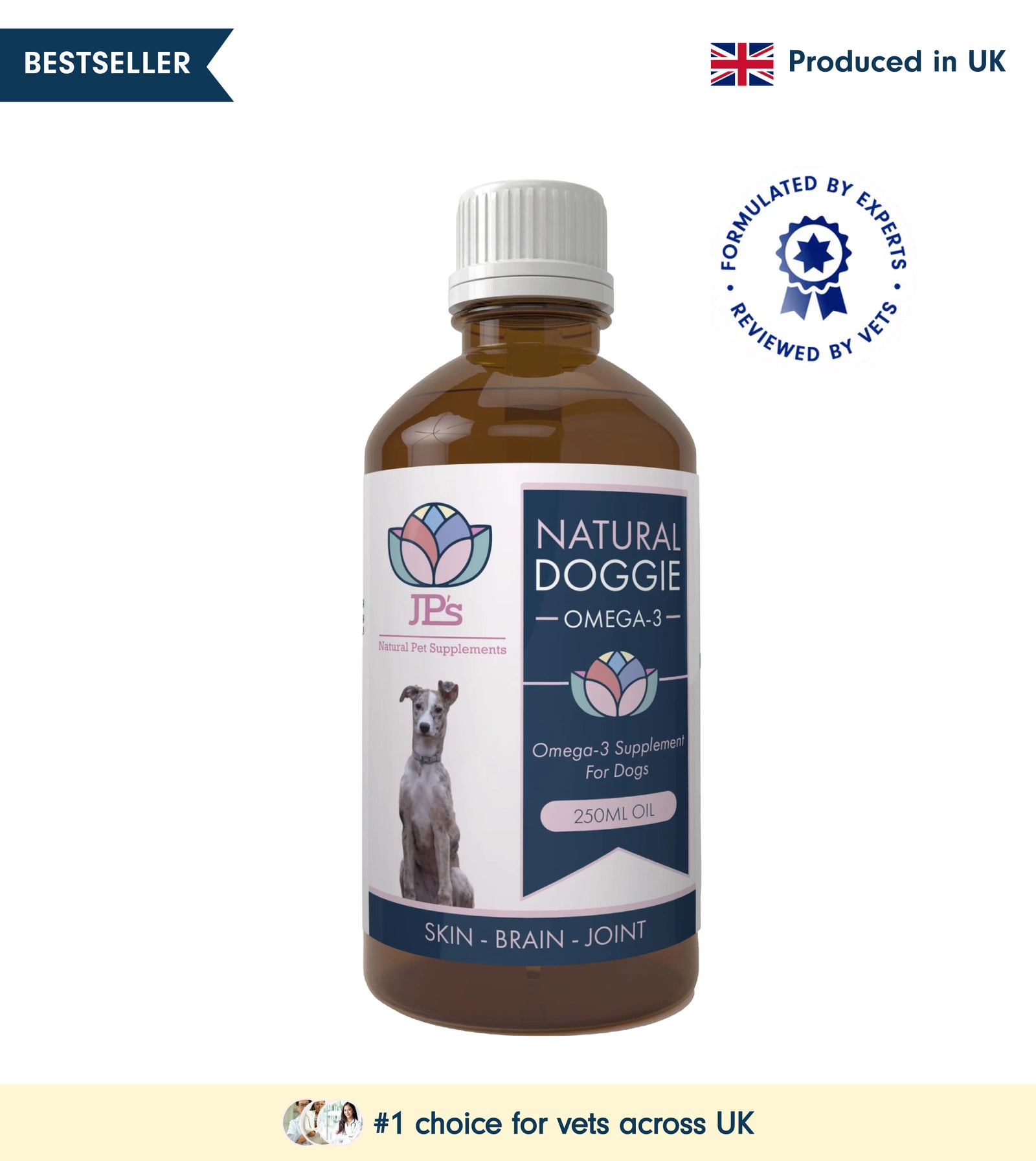
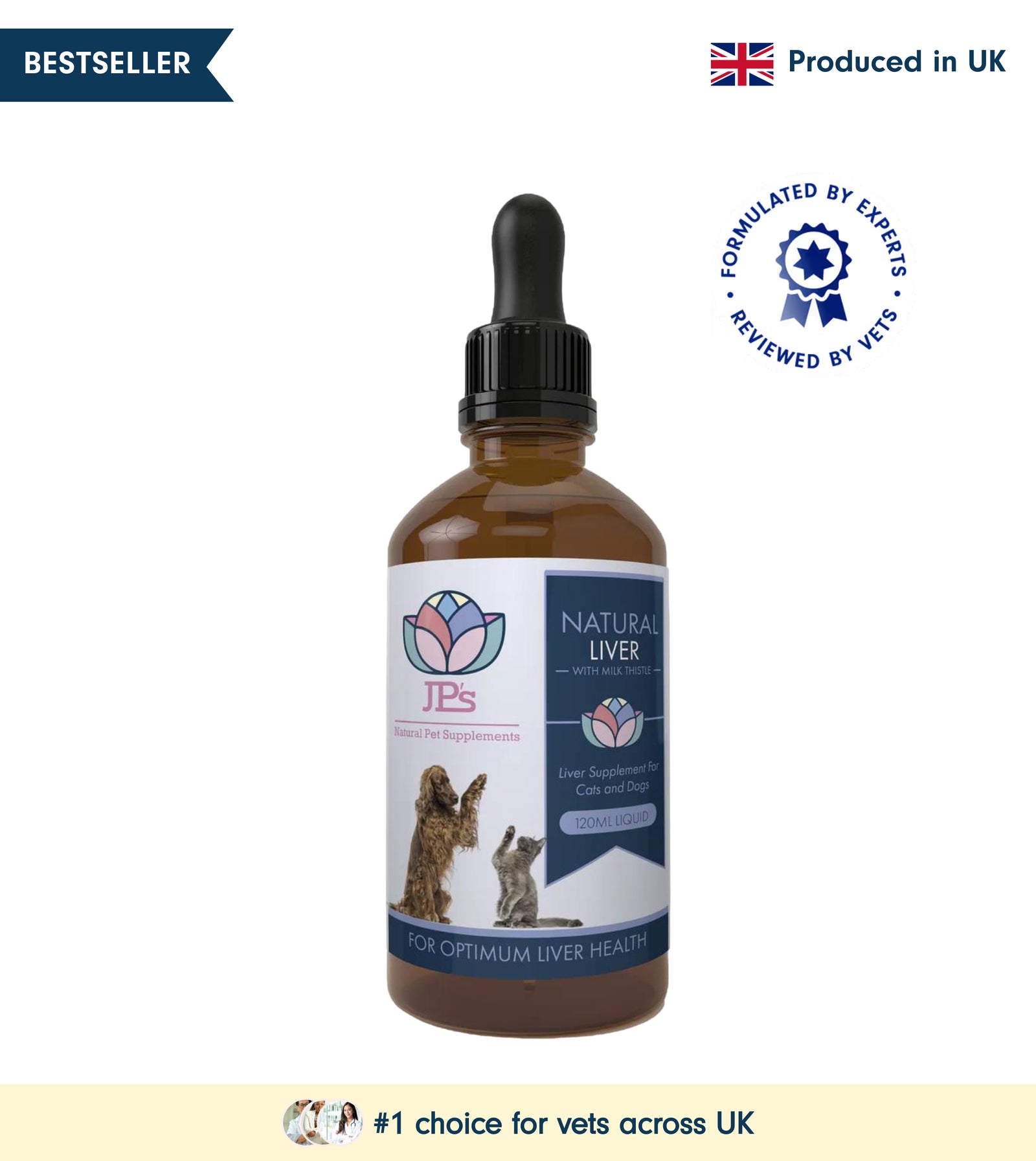
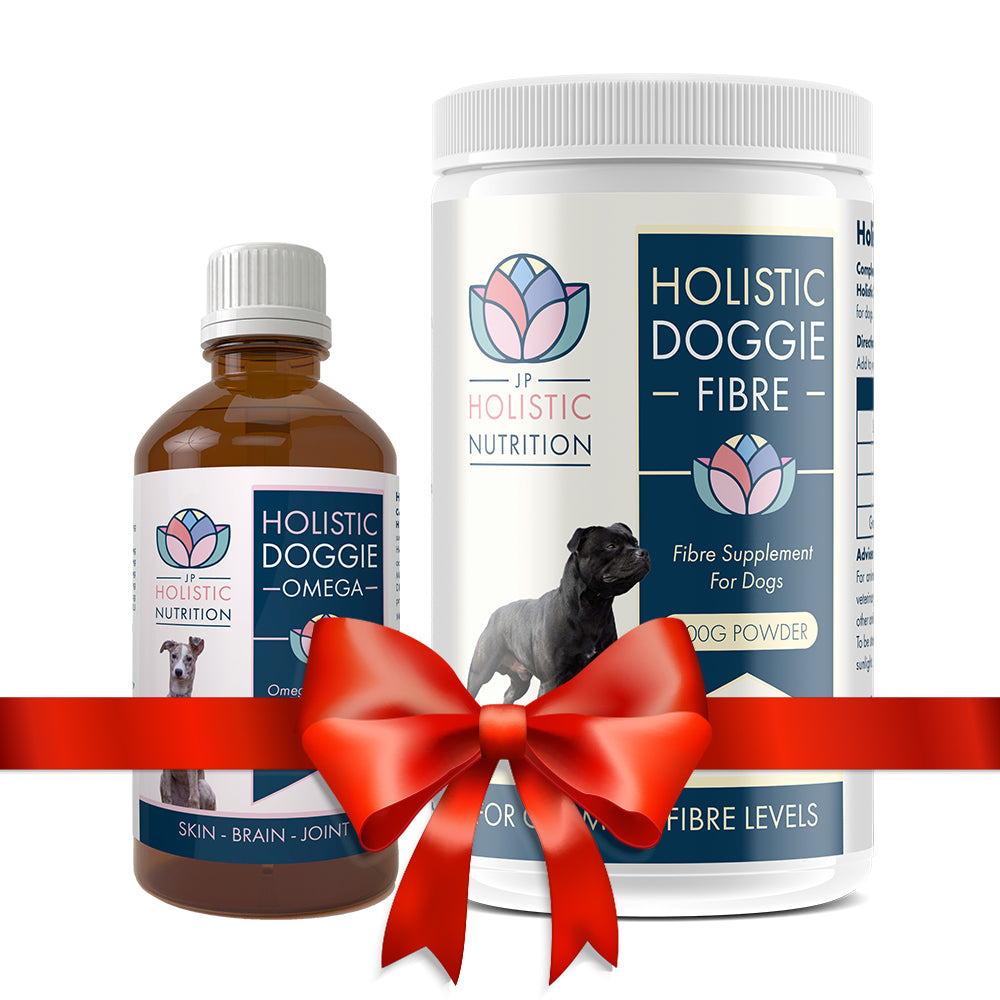
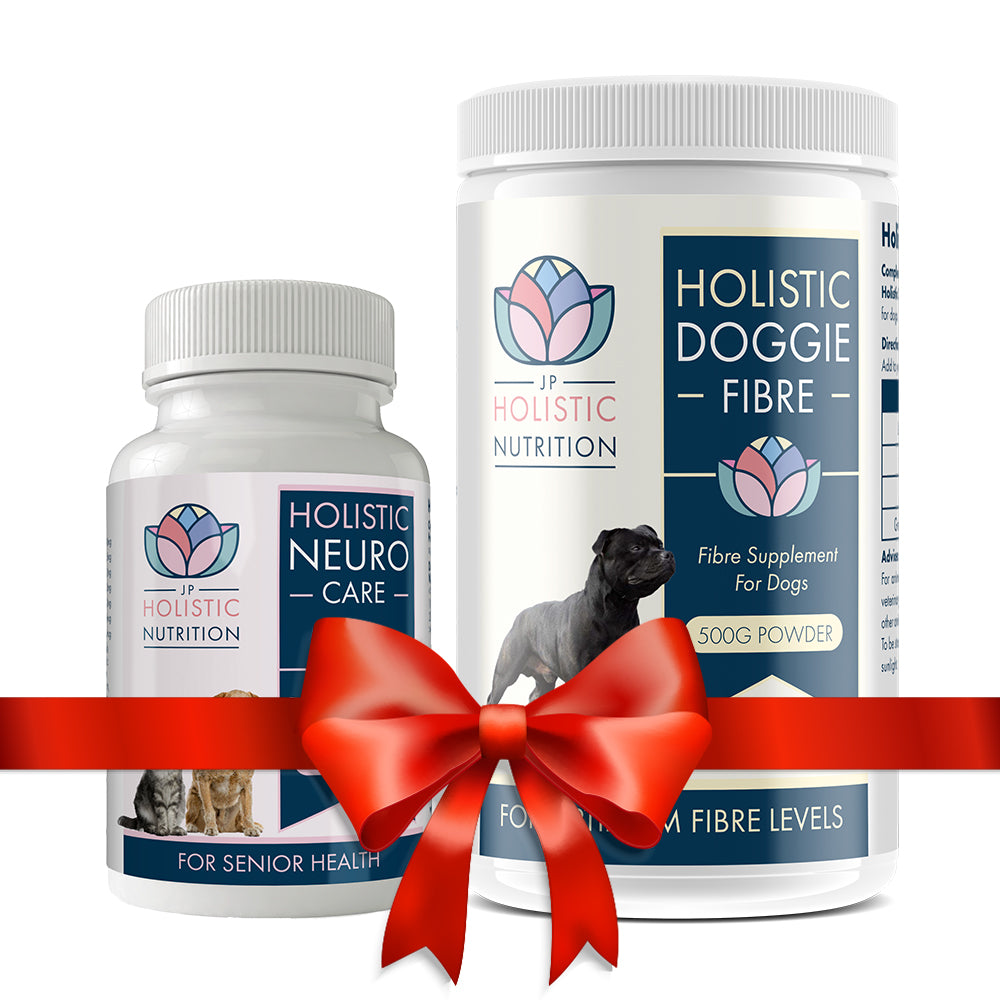
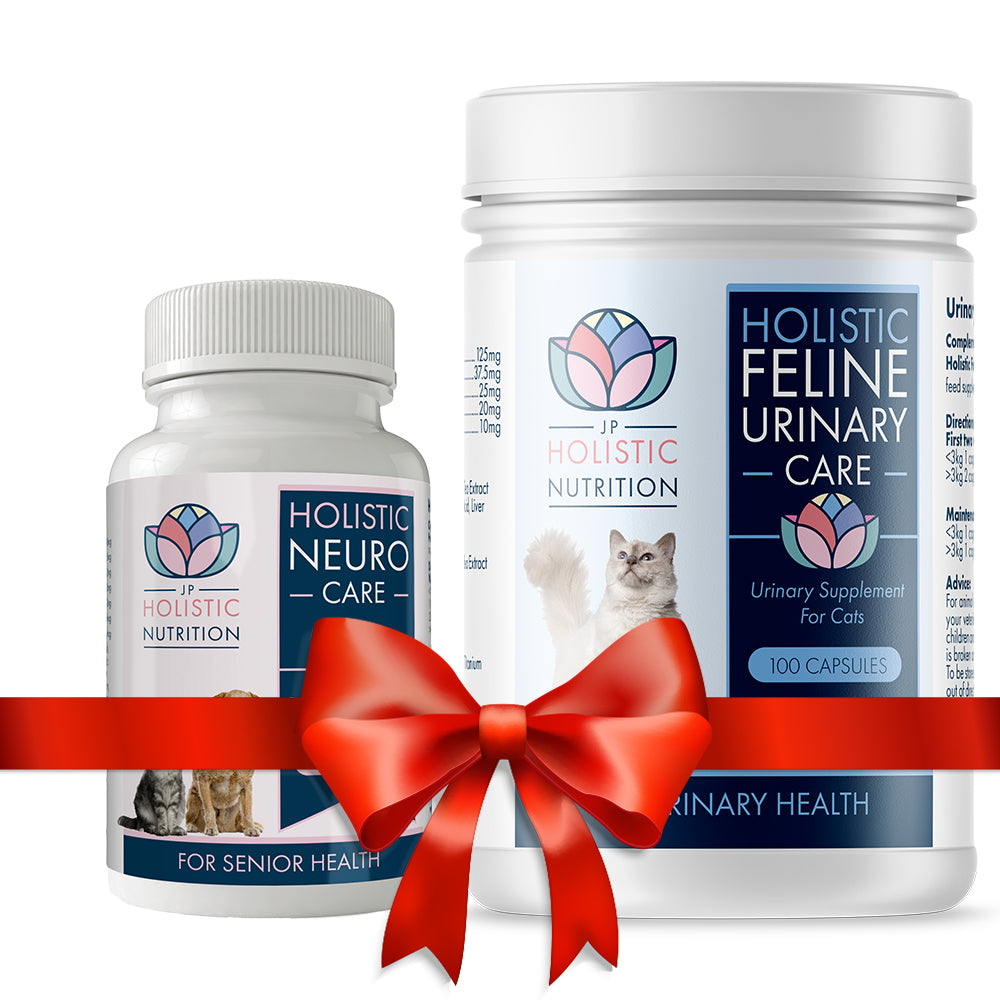
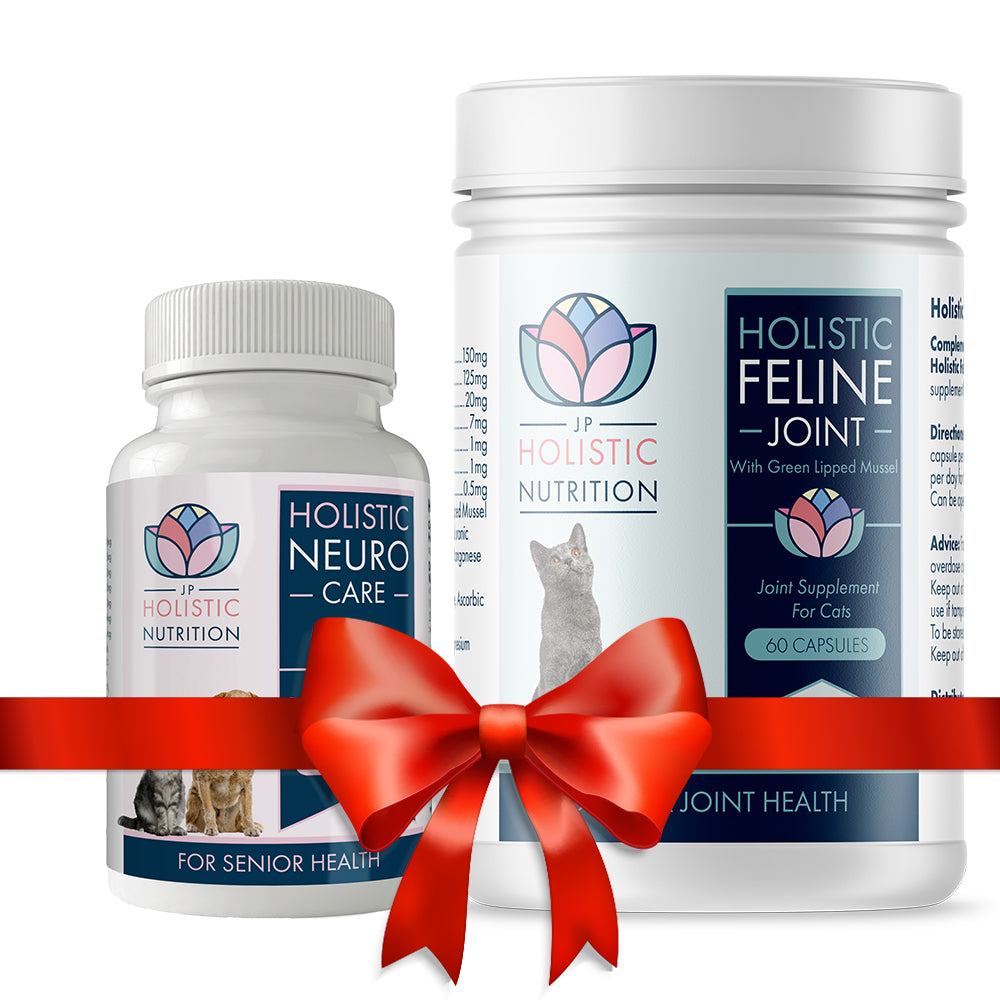







Leave a comment (all fields required)